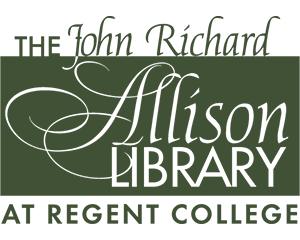History Research Guide
 Processing Request
Processing Request
History is not the past itself, but interpreting the past. Thus, a good history paper does not merely seek to tell a story or describe past events, but aims to provide a well-supported argument. Like lawyers, historians persuade their audiences with logical, convincing arguments and build their cases on compelling evidence.
In order to craft a good argument, one must use the right sources, and in the field of history, primary sources are the most improtant type of sources. Primary resources are like eyewitnesses—they are the original, first-hand materials from the time-period being researched and provide the main source of evidence for this research. They can be in the form of autobiographies, diaries, letters, books, archaeological artifacts, speeches, newspaper or magazine articles, photographs, telegrams, legal documents, court and police records, ships’ logs, oral histories, artwork, novels, music, videos, and more. Augustine’s autobiography The Confessions, Teresa of Ávila’s mystical The Interior Castle, and letters between Abigail and John Adams are all examples of primary sources.
When searching for primary sources, students should attempt to find the most recent, definitive, or critical version of that source. One way to figure this out is to see which version is used in secondary sources that are new and scholarly. The next section of this guide further describes secondary sources.
While primary sources should be the focus of research for a history paper, secondary sources must also be used for support. Secondary sources are composed by later writers looking back on the past. They discuss, analyse, and interpret primary sources. Secondary sources come in different forms including journal articles, monographs on specific eras, figures, or topics, reference books (e.g., encyclopedias and dictionaries), textbooks, commentaries, biographies, and reviews, as well as newspaper and magazine articles. Secondary sources act as conversation partners who help the student evaluate and interpret data by providing background information and different perspectives the student may not have considered (e.g., feminist, sociological, or Marxist).
The best way to begin studying a specific topic in the field of history is by consulting dictionaries and encyclopedias, which give short descriptions of events, figures, and topics, as well as suggested sources for further research.
Online Encyclopedias and Dictionaries:
The Oxford Reference Online, Oxford National Biographies, Cambridge University Press, and Cambridge Histories Online are all excellent online sources. Click here to access these through the UBC Library. Click here for encyclopedias and dictionaries about specific time periods or geographic regions.
Printed Resources
The Allison Library also has many dictionaries and encyclopedias in print form, often found in the reference section on the right side of the library. For historical research, check BR 65 and onward section for dictionaries about church history. See section C for history of civilization and archaeology, D for world history, and E & F for history of the Americas.
Some important dictionaries and encyclopedias available in print at the Allison Library are:
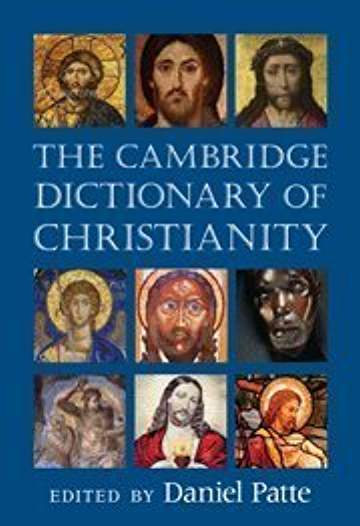
The Cambridge Dictionary of Christianity
ed. Daniel Patte
Cambridge: Cambridge University Press, 2010.
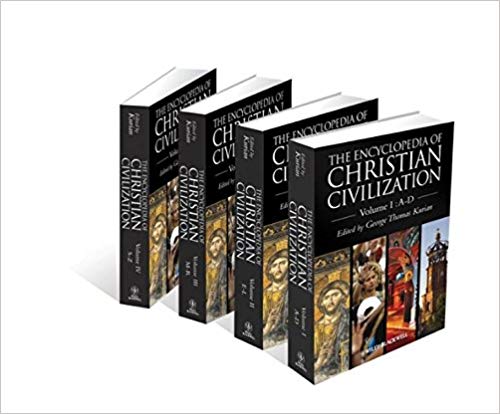
The Encyclopedia of Christian Civilization
ed. George Thomas Kurian
Malden: Blackwell Publishing, 2010.
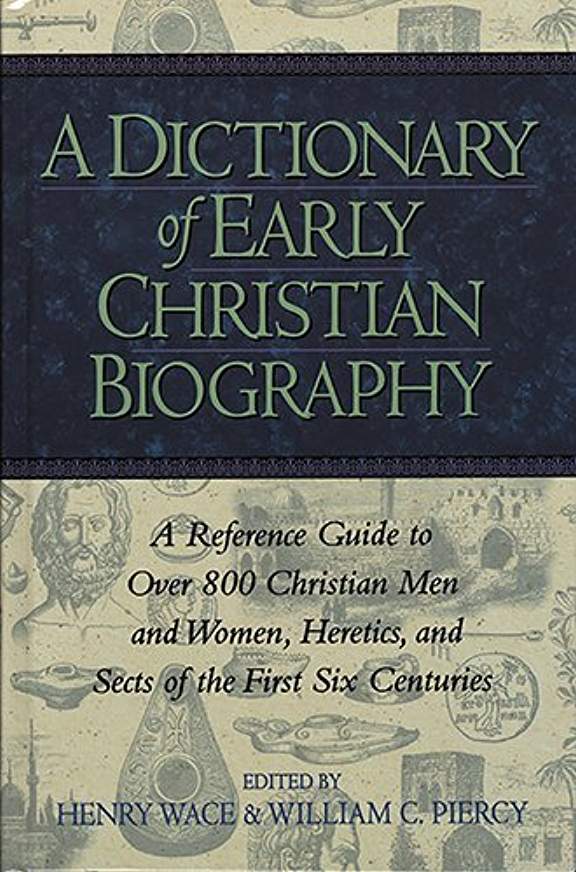
A Dictionary of Early Christian Biography
eds. Henry Wace and William C. Piercy
Peabody: Hendrickson, 1999.
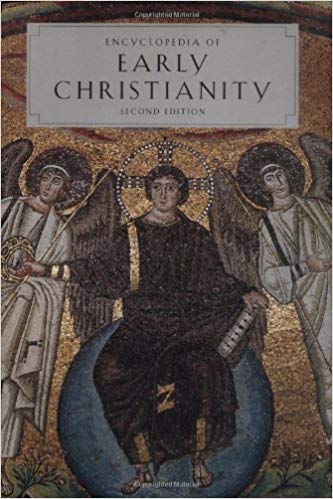
The Encylopedia of Early Christianity
eds. Everett Ferguson, Michael P. McHugh, Frederick W. Norris
New York: Garland Publishing, 1997.
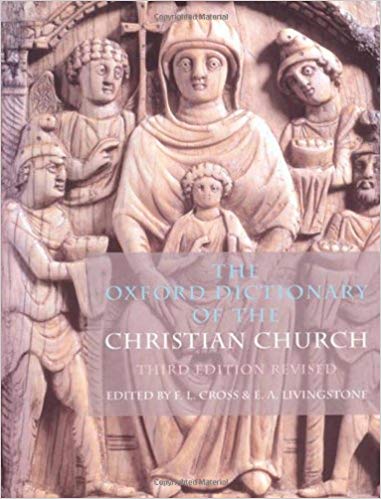
The Oxford Dictionary of the Christian Church
eds. F.L. Cross, Elizabeth A. Livingstone
Oxford: Oxford University Press, 2005.
There are several places to find print and online collections of primary sources. First, the Allison Library contains many primary sources in print that can be easily found via the catalogue by searching author or title, and also provides access to several databases that contain primary sources. For example, The Canterbury Dictionary of Hymnology contains concise entries about hymns, song writers, organizations, and themes.
Second, the UBC Library also provides databases that contain primary sources. Click here to go to UBC's list of indexes and databases, which include Early English Books Online and Eighteenth Century Collections Online containing letters, diaries, and other manuscripts. Other collections, such as The Making of America and 19th Century UK Periodicals provide access to historic newspaper articles. Click here to access these collections.
Third, there are also many online resources outside of the Allison Library and UBC that can guide students to primary sources. Click the links below for subject-specific resources:
Greek and Latin Texts
- The Digital Loeb Classical Library
Church History
- Christian Classics Ethereal Library
- Christian Church History Timeline
Early Church
- The church fathers on CCEL
- Early Christian Writings (including apocryphal texts and the Didache)
- The Tertullian Project
- Augnet (Augustine of Hippo)
- 4th century texts at Wisconsin Lutheran College
Medieval/Renaissance Period
- The Internet Medieval Sourcebook at Fordham
- Monastic Matrix (biographical information and primary resources on medieval monastic women in Europe)
- Perseus Collection of Renaissance Materials
- UBC databases, including Medieval Family Life, Medieval Travel Writing, and Parliament Roles of Medieval England
Reformation Period
- The Internet History Sourcebook at Fordham (primary sources from leading Reformers)
- The National Archives (documents related to the English Reformation)
- The Post-Reformation Digital Library
Modern Period
- The Wesley Centre Online
- The Jonathan Edwards Centre at Yale University
- MASS Observation Online (for modern social history, including diaries, survey responses, photographs, and more from 1937-1972, which are useful for studying WWII)
British History
- British History Online
- Bibliography of British and Irish History
Maps
- Old Maps Online
There are also many ways to find secondary sources. The Allison Library holds countless secondary sources in print form that can be searched by figure, subject, or title via the catalogue. In addition to these print resources, online journal articles should also be used by accessing a certain journal or specific articles in a journal through a database.
Journals
Click here to search for a journal alphabetically by title. Some useful journals include:
-Church History
-Church and State
-Cistercian Studies Quarterly
-Methodist History Journal
-Journal for the Study of Religion
-Journal of Early Christian Studies
-Journal of Early Modern Christianity
-The Journal of Ecclesiastical History
Databases
The most useful databases Regent College offers for historical research are EBSCO and PROQuest Religion Databases. Both provide access to journal articles about religion and theology. Click here to access these resources.
UBC library also offers useful databases for historical research, including Academic Source Premier, Bibliography of Asian Studies, Handbook of Latin American Studies, JSTOR, International African Bibliography, Nineteenth Century Index, Project Muse, and others. Click here to view these.
Oxford Bibliographies Online and the open-access Database of Religious History may also be of use.
